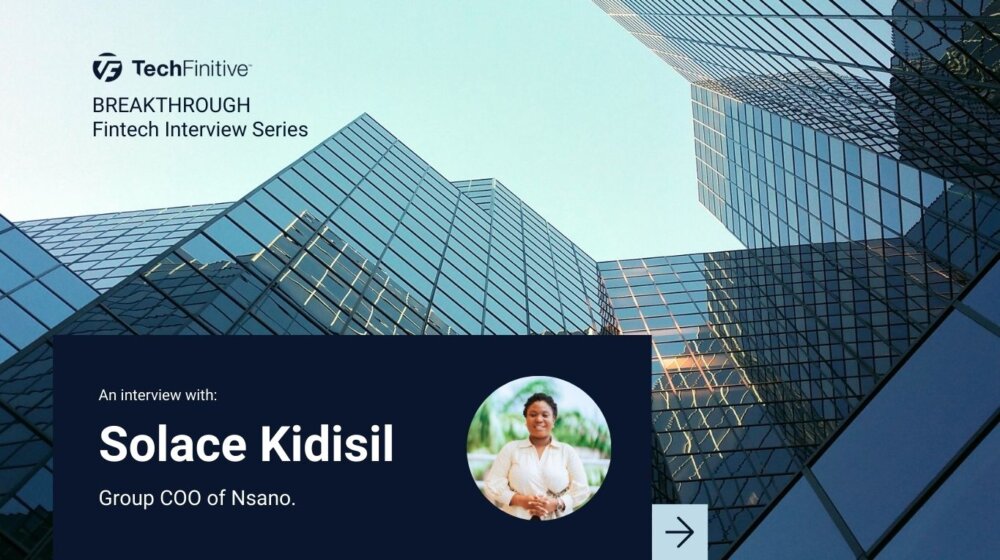
Serena Chan, Research Advocate, Customer Experience at Dovetail: “Customer experience professionals must trust in their own talents and instincts”
We have terrible news for Serena Chan, Customer Success Manager at Dovetail. While her career at the cutting edge of CX may be forever, AI is stealing one of her great talents: for Serena is a published poet, and if there’s anything that AI is good for it’s summarising works into pithy poems.
Before we share what Microsoft’s Copilot technology conjured up for this page, a brief introduction to Dovetail. In six short years, this has grown from startup – founded by Benjamin Humphrey, formerly of Atlassian – to the driver of research innovation at over 3,700 organisations, including brands such as Harvard Business, Porsche, Starbucks and Shell.
Canva’s product team has used Dovetail since the very beginning to analyse customer research data, uncovering insights that improve their product’s user experience.
Before joining Dovetail, Serena held UX design research and product roles across various industries, including health tech, entertainment and social enterprises. She also holds an MBA in Design Strategy from California College of the Arts, though her academic journey started with a Bachelor of Science in Public Health.
As a poet, Serena uses storytelling at work and leisure – so we just hope she isn’t too offended by this AI-created offering:
In the realm of insights, Dovetail reigns, Serena Chan, a beacon, her passion contains. With UX and research, her path she did weave, Through public health’s lens, she began to perceive.
A Customer Success Manager, her role so defined, Advocating for users, with a keen, thoughtful mind. At Dovetail, she stands, where insights are king, Helping brands like Canva, their praises to sing.
AI’s embrace, in service she sees, A future where customer care does more than please. With data and touchpoints, a narrative spun, Of experiences rich, second to none.
Her accomplishments, a showcase each month, Customer voices and insights, a powerful punch. A poet at heart, her words do inspire, In a world of design, she never tires.
For those in CX, her advice rings clear, Trust in your talents, and hold them dear. With AI as a tool, but a human touch core, She crafts journeys for customers, who could ask for more?
Recommended reading: What is customer experience (CX)?
Could you please introduce yourself to our audience? What motivated you to pursue a career in customer experience, and how did you embark on your journey in this field?
My name is Serena Chan and I am the Customer Success Manager / Research Advocate at Dovetail, a consumer insights and research technology platform. We help our customers manage their research and gain actionable insights into their customers’ behaviour and needs.
I had actually studied medicine and public health before embarking on my career. However, I found it was the psychological aspects of my degree – systems thinking and design thinking – that were my passions. I pursued this and arrived at Dovetail, where I continue to grow my knowledge every day.
Superb customer service is built around touchpoints – each of which is a chance for companies to personalise their customers’ experience, make their journey efficient and enjoyable, and get to know their customers better. These touchpoints could be anything from an onboarding experience to a customer support IT query. They also provide the data that companies can use to make better business outcomes.
With the global rise of AI, this is a fascinating time to be working in CX. However, what will always remain central for me is creating experiences for customers in which they feel informed, part of a community, and happy and enthusiastic about a brand. Service design is absolutely key to this.
What are your thoughts on the escalating integration of AI in customer experience and its potential influence on the future of customer service at large?
Integration of AI will enable companies to deliver simpler, but more powerful, CX experiences.
There is such an array of AI tools that companies can tailor their choices to their business needs. It might be that they deploy natural language processing (NLP) capabilities in the form of chatbots or virtual assistants, or use AI monitoring to look at their social media responses or sentiment analysis of large data sets.
These tools help to elevate customer experience as they enable companies to better understand their customers, personalise their experiences, streamline the buyer journey, and boost decision-making for better business outcomes.
AI also allows companies to work faster and more efficiently. It can be used for process automation or to guide customers in self-service situations, but it also comes into play in areas like protecting sensitive participant data.
In the background, AI dramatically speeds up data analysis, which gives companies access to meaningful information that they can interpret and act upon to spot trends or issues.
Whatever range of tools companies opt to deploy, they will ultimately get a deeper understanding of their customer; and this is at the core of customer retention.
Recommended reading: Spark review: is this the best alternative to Outlook on Mac?
How do you ready yourself for an AI-driven landscape as a customer experience leader? What new skills do you need?
Those working within CX will need to be involved in the process of deploying the AI tools chosen by the company C-Suite and will then need training on what these tools do and how this will change their day-to-day workflow. For example, some aspects of CX might be automated. Chatbots are already being widely used to answer commonly asked questions in real-time that resolve difficulties, get information or request customer feedback. All of this saves vast amounts of time for employees and means their talents can be used elsewhere.
A key role will be working with the data that AI can mine, store and analyse. Customer experience leaders will need to have the skills to be able to interpret that data. This means that they will not only be listening but actually understanding what the customer data is telling them. This data can then be used to offer more personalised experiences for their customers, act on trends and patterns, and predict future behaviour. The data is incredibly powerful if customer experience leaders know how to use it.
AI can potentially completely change the CX journey and the part that customer experience leaders play in it. I see this in my own role. However, human creativity, empathy, accuracy and the ability to get nuances can’t be replicated. Customer centricity will remain the customer experience leaders’ focus, but they will have new tools to support them and more easily make sense of larger volumes of customer data.
Could you share some of your most noteworthy accomplishments that you take particular pride in?
I run a monthly company-wide customer showcase – taking things I’m hearing from customers, themes they are discussing and hot topics relevant to our company strategy. I look at the insights, create highlight reels focusing on specific quotes or feedback, and then present them to the whole company. I leverage Dovetail’s highlight reels featuring video clips from our own customers so everyone can see for themselves just how we are doing from our customers’ point of view and what improvements we can make to enhance the overall experience.
Each month, this allows me to advocate for the customer, but also to really push my systems thinking and design thinking abilities. It has been an accomplishment to then see the company act on the information I have showcased, using it to inform both product and company strategy.
On a personal level, I am now a published poet. I started writing when I was really young as a way to help me process life. In high school and college, I shared my poetry, getting up at open mic nights, which really pushed me out of my comfort zone. One evening, someone came up and shared that my poem had resonated with them, and that felt like a huge accomplishment. The pinnacle, though, was getting a piece published in a Bay Area literary magazine and reading it at an event they organised.
Recommended reading: New Outlook is replacing Windows Mail. Should you use it?
What core values have played a pivotal role in shaping your approach to customer experience?
Designing experiences is at the core of what I do. My dad is a software product manager, and my mom is a hardware product designer, so there were lots of casual conversations around the dinner table about good design and user experiences. It became part of my language and how I saw the world from a very young age.
During my degree, the focus was on experiences in the medical world, but now my scope is wider. I actually find it plays a role in everything I do – from my work at Dovetail to organizing a supper club evening at home. It’s the through-line – how do I want people to feel and be transformed by the experience?
The desire to have an impact is pivotal for me, whether organizing events for customers or through those many touch points when they engage with us. I also want to have an impact within Dovetail, feeding back to colleagues what I have learned and democratizing access to data and information across the company. There are people in the company who speak to customers every day so we can empower each other with what we have all learned. This is absolutely key for cross-functional alignment.
I want my work to build a more equitable and kinder world, and by being customer-centric, you can achieve this. I want people to walk away from their interactions with me feeling listened to, valued, and empowered. I lean into curiosity, empathy, and collaboration as guiding principles in how I work both with customers and internal stakeholders.
What piece of advice would you offer to fellow customer experience professionals that has been particularly beneficial to you personally?
Customer experience professionals must trust in their own talents and instincts. If you are in this field, you have a natural tendency towards customer-centricity. Stay true to your values, keep firing your passion for customer care, and always be open to new ways of thinking or working – or new tools like AI – that will enable you to do your job even better.
Remain curious so you can innovate when the technology becomes available to you. I engage with the wider CX community. For example, I went to a service design global conference in Berlin and took part in a journey mapping workshop that was especially framed for people in CX. I then shared an internal blog on what I had learned, to bring in my colleagues. I’ve recently started facilitating journey mapping workshops internally as well! These conversations are so essential and spark ideas.
Also – this is an area in which things move incredibly fast. I make sure that I look after myself so that I can give as much as possible to my role. What works for me is meditation. This is core to who I am and how I show up in my work. My mindfulness practices help balance me – keeping me grounded, helping me to think strategically at work, and to remain compassionate. The latter is so important as, ultimately, I am always customer-focused and my work is critical. If a customer has a wonderful experience with our company, they will more likely be successful and stay for the long term.
NEXT UP

Slow buyers cause tech firms to rethink sales approaches as tough Q1 hits home
New research suggests tech sales were slow in Q1, with buyers of technology and professional services taking their time before committing to any solutions.

ByteDance says it has no plans to sell TikTok and refuses to bow to US pressure
ByteDance, the Chinese company that owns TikTok, stated that it “doesn’t have any plans to sell TikTok” on Toutiao, a social media platform that it also happens to own.

Solace Kidisil, Group COO of Nsano: “The difference between traditional finance and fintech is the questions we ask”
We interview Solace Kidisil, Group COO of Nsano, a fintech company from Ghana, offering digital payment solutions across Africa